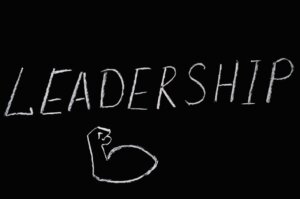Have you ever hired someone who did not live up to expectations? I’m sure many of us have at one time.
An effective interview can prevent that from happening. The purpose of the interview is to obtain good information about an applicant to make a wise selection decision. It may sound simple but then why are there so many poor hires? Too many people rely on gut instinct in their hiring decisions.
Be aware of these seven common interviewing mistakes or errors that prevent you, hiring manager or business owner, from getting the best
1. Focus on the right stuff.
Pinpoint the specific skills necessary for success in the job. Develop behavioral interview questions to reveal whether the candidate has what it takes to match the job requirements.
2. Never begin an interview saying:
“I haven’t had time to really review your resume…so tell me about yourself.” Before every interview, study the person’s resume to zero in on qualifications, decide on what questions to ask, and make efficient use of the allotted time.
3. Don’t ask for information you already have.
You ask, “Let’s see, how long have you been in your current position?” This is a wasted question because you should know the answer from the application. The interview should be used to obtain new information and hone in on the applicant’s capabilities.
4. Don’t be afraid to ask tough questions.
If you uncover anything during the reference checking or employment history review that raises red flags, ask about it during the interview. It is important that you clear up any concerns before you reject or hire the applicant.
5. Prevent interruptions unless there is an emergency.
Your office door should be closed. Put calls and messages on hold. Remember, the key purpose of an interview is to determine if this person is a good fit for the position. Don’t waste this precious time on other matters.
6. Make sufficient notes.
Relying on memory gives the first and last candidates an unfair advantage. Be aware of the “halo effect”. Placing too much emphasis on a first impression or one characteristic can overshadow everything else.
7. Keep score with the right goals in mind.
Develop a rating system to analyze and compare each candidate. It could be a simple scale from one to five with (1) being poor to (5) being great. Rate each person immediately after the interview, by matching the person to the job description. Narrow down your list to no more than three or four finalists. Then develop another list of questions and only then start comparing one candidate to another.
Management Success Tip:
Make the next interview count. Think back to previous interviews you have conducted. Did you make any of the above mistakes? If so, what can you do to improve your interviewing skills the next time around?
Do you want to develop your Management Smarts?
- Build your skills with The Effective Manager.
- Sign up for Quick Wins: 101 Management Tips.
- Find performance boosters in the Smart Moves Blog.
- Fast-track your leadership. Be part of a Success Team.
- Need a speaker? Get the Edge keynotes-webinars-workshops.
- Copyright © 2012 Marcia Zidle business and leadership coach.
 Sections of this topic
Sections of this topic
















